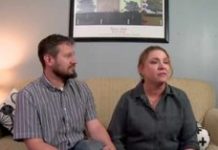
Why is Ho’oponopono powerful?
Throughout human history, we have been divided by distance, language, cultural and religious beliefs, class, and economic hierarchy. Whenever someone comes up with a perspective there seems to always be someone else there with an opposing opinion. To me, the power of Ho’oponopono comes, in large part, from the fact that it’s a really rare thing for the vast majority of humanity to be in agreement about anything. Ho’oponopono is an ancient Hawaiian practice of forgiveness and reconciliation. By doing this practice, the ancient cultures believed it would clear the mind and the roots of illness. Traditionally, it was performed by spiritual priests among the family members. The literal translation is: “To put right; to put in order or shape, correct, revise, adjust, amend, regulate, arrange, rectify, tidy up, make orderly or neat.”
Across all cultures practically all of us agree that the concepts of thank you, I’m sorry, please forgive me and I love you are all valuable and important.
Turns out that loving yourself is the greatest way to improve yourself,
and as you improve yourself, you improve your world.
Suffice it to say that whenever you want to improve anything in your life,
there is only one place to look: inside you.
And when you look, do it with love.
Whenever a place for healing presents itself in your life, open to the place where hurt resides within you. After identifying this place, with as much feeling as you can, say the following four statements:
I love you.
I’m sorry.
Please forgive me.
Thank you.
Holding onto resentment and bitterness can take up a lot of space inside us – it is more of a hindrance for ourselves than for anyone else. Most of us have been taught to forgive others. But forgiving ourselves is a practice that is easier said than done.
Forgiveness is important for self-healing, for examining and evaluating our causes of pain and to open them. Without opening them, we block the chance to move forward in our process of growth and evolution.
I’m often hard on myself when things go wrong and I make mistakes. We are much more likely to understand our loved ones when they are going through something difficult. We tell them to be easy on themselves, yet when the tables are turned we expect perfection.
A huge lesson for me has been to understand that if I can forgive myself, I can be at peace with myself. I found that by simply chanting these words that my inner discordance, my stuff, would come up. Not only would it come up, but it was as if my inner disharmony was being tuned to the frequency of these words and the intention they carry.
Lucretia Hurley-Browning, MDiv, MS, is a guest writer whose recent background includes Chaplain of Abramson Cancer Center at Pennsylvania Hospital and the Director of Juniper Tree Counseling Center. She is a therapist and ordained United Methodist Minister. Currently she is a writer by day, a reader by night, and is passionate about living life meaningfully with a good dose of fun.








